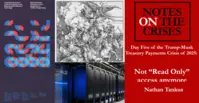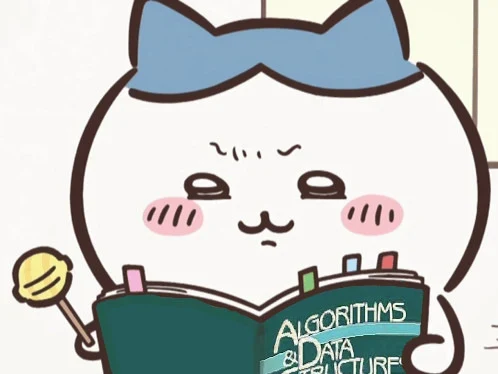For anyone unfamiliar, the eponymous "crises" in the title are NOT about the evil orange man who is bad - Notes on the Crises is a political economy newsletter started a few years ago by Nathan Tankus to comment on the intersecting global economic disasters triggered by the Covid-19 pandemic.
Nathan is a @TracingWoodgrains style "truth neurodivergent" not a wingcucked political hack. He's just a big giant dork who does things like FOIA request the minutes from all US Federal Reserve Board meetings from 1967-1973
Nathan looks like this, and I would believe almost anything that he writes, because it is backed by powerful neurodivergent spirits.
When he writes about the COBOL code in the treasury department, I'm confident he's talking to beardy old men who write and maintain that code.
I would also like to clarify some confusion on social media. The issue with understanding and grasping a COBOL system is not knowing COBOL, as a programming language, in the abstract. Nor is it, god help me, something that AI can "do" because you fired one of these chatbots up and got some code that could compile when you asked "write me some COBOL code". The issue is understanding the specific physical limitations of the system, the way that it interacts with the "Business Logic" of the code and a million other contextual factors.
There is specific code which tells you where to direct specific payments in specific ways and the structures, and why they are structured the way they are, requires deep contextual knowledge. This is "business logic". The entire issue with COBOL and why it has been such a struggle to maintain it is that COBOL systems (both private and public) developed for decades with very little documentation, have a million different path dependent coding choices. Mar Hicks 2020 article in Logic Magazine "Built to Last" is worth a read on this topic.
This is what I meant yesterday when I referenced that 30 different COBOL systems at Treasury had developed their own "dialects" and they launched Payment Application Modernization (PAM), which among other things, unified them. What they unified was the business logic of those systems (as well as likely other factors, most notably the physical architecture of the systems they ran on). Part of me wishes they didn't modernize with PAM because those 30 different and distinct systems would have been more secure from their infiltration. PAM processed 4.7 trillion dollars of payments in 2024.
It's also true that some similar issues can emerge with other more recent programming languages and the way "business logic" emerges if a mission critical IT system developed using a more recent programming language. But COBOL is unique; after all it's literally "common business-oriented language". So while knowing the COBOL programming language is better than not knowing it, it does not make that much of a difference with these young Musk programmers mucking about.













Jump in the discussion.
No email address required.
Jump in the discussion.
No email address required.
This whole topic is so confusing. Trump wants to cut out programs because they are racially discriminatory. And then they say Trump is a racist because racial discrimination and segregation are good things and necessary to prevent the evils of discrimination and segregation.
Jump in the discussion.
No email address required.
More options
Context
More options
Context